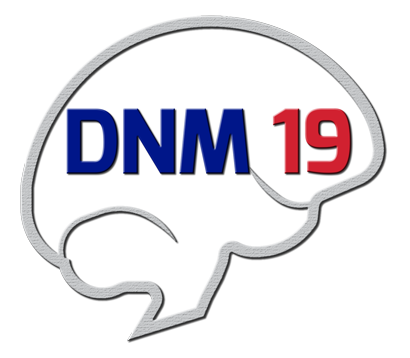

Our main speakers this year cover an exciting array of topics throughout the various sessions in our programme. Click on the images below to learn more.
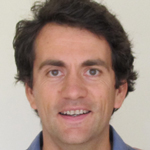 Radu Aricescu is an MRC Senior Research Fellow and Programme Leader at the
MRC Laboratory of Molecular Biology in Cambridge (UK) and a visiting professor
at the University of Oxford, WCHG, Division of Structural Biology. He leads a research group employing structural, biochemical and electrophysiology methods to study the mechanisms of neuronal synapse formation, function and
remodelling. Radu completed undergraduate and MSc training in biology and molecular biology at the University of Bucharest, Romania, and received a PhD in neurobiology from the University College London. This was followed by postdoctoral training in structural biology at the University of Oxford.
Radu Aricescu is an MRC Senior Research Fellow and Programme Leader at the
MRC Laboratory of Molecular Biology in Cambridge (UK) and a visiting professor
at the University of Oxford, WCHG, Division of Structural Biology. He leads a research group employing structural, biochemical and electrophysiology methods to study the mechanisms of neuronal synapse formation, function and
remodelling. Radu completed undergraduate and MSc training in biology and molecular biology at the University of Bucharest, Romania, and received a PhD in neurobiology from the University College London. This was followed by postdoctoral training in structural biology at the University of Oxford.
 Tracy L. Bale, Ph.D. is a Professor of Pharmacology and Psychiatry, and Director of the Center for Epigenetic Research in Child Health and Brain Development in the School of Medicine. She is a member of the Society for Neuroscience and the American College of Neuropsychopharmacology. Dr. Bale completed her Ph.D. at the University of Washington and her postdoctoral work at the Salk Institute with Dr. Wylie Vale. She was previously a Professor of Neuroscience at the University of Pennsylvania for 15 years. Dr. Bale was recruited to the University of Maryland School of Medicine as a STRAP recruit and the Director of the Center for Epigenetic Research in Child Health and Brain Development.
Tracy L. Bale, Ph.D. is a Professor of Pharmacology and Psychiatry, and Director of the Center for Epigenetic Research in Child Health and Brain Development in the School of Medicine. She is a member of the Society for Neuroscience and the American College of Neuropsychopharmacology. Dr. Bale completed her Ph.D. at the University of Washington and her postdoctoral work at the Salk Institute with Dr. Wylie Vale. She was previously a Professor of Neuroscience at the University of Pennsylvania for 15 years. Dr. Bale was recruited to the University of Maryland School of Medicine as a STRAP recruit and the Director of the Center for Epigenetic Research in Child Health and Brain Development.
Dr. Bale’s research focuses on understanding the role of stress dysregulation in neurodevelopmental and neuropsychiatric diseases, and the sex differences that underlie disease vulnerability. Her groundbreaking work has uncovered the molecular mechanisms by which the environment influences parental germ cell signals and placental trophoblast development, altering fetal brain development and maturation. Her lab is particularly interested in developing models of parental stress and the germ cell involvement in intergenerational epigenetic programming of neurodevelopment. Her research also has a significant translational component, focusing on identifying biomarkers of disease risk and stress experience in semen, placental tissue, microbiome samples and plasma. In addition to building translational research across the campus, her Center has an extensive outreach component to facilitate building relationships in the Baltimore community and promoting a greater appreciation for the impact of the environment on child health and brain development. She serves on many advisory committees, panels, and boards, including the Scientific Advisory Board for the Max Planck Institute of Psychiatry in Munich, the Congressional Committee on Gulf War and Health for the National Academy of Sciences, the Strategic Planning Committee for the National Institute of Child Health and Development, and the Scientific Advisory Board for The Brain Foundation. She recently served as Chair of the NNRS CSR study section and was a Reviewing Editor at the Journal of Neuroscience. She is currently serving on the Press Committee for the Society for Neuroscience and the Education Committee for the American College of Neuropsychopharmacology. She has been the recipient of numerous awards for her research including the Richard E. Weitzman Memorial award by the Endocrine Society, the Medtronic Award from the Society for Women’s Health Research, the Daniel H. Efron award from the American College of Neuropsychopharmacology, the NIH Award from the International Federation of Placenta Associations, and the Joseph Erlanger Distinguished Lecturer Award from the American Physiological Society.
 Andrea Barberis graduated in Biology at the University of Genoa in 1996, and accomplished his PhD studies in 2002 at the Department of Biophisics–SISSA International School for Advanced Studies- under the supervision of Enrico Cherubini studying the gating of recombinant and synaptic GABAA receptors. During his post-doc in the Stefano Vicini’s lab at Gergetown University (Washington DC, USA, 2003-2005) he studied the gating properties of different GABAA subtypes by analyzing their single channel behavior in equilibrium and non-equilibrium conditions and he investigated the developmental changes of the GABA transient in the synaptic cleft in cerebellar granule cells. From 2005 to 2007 he had a CNRS post-doc in the Christophe Mulle’s lab (Bordeaux, France) studying the gating properties of kainate receptors.
Andrea Barberis graduated in Biology at the University of Genoa in 1996, and accomplished his PhD studies in 2002 at the Department of Biophisics–SISSA International School for Advanced Studies- under the supervision of Enrico Cherubini studying the gating of recombinant and synaptic GABAA receptors. During his post-doc in the Stefano Vicini’s lab at Gergetown University (Washington DC, USA, 2003-2005) he studied the gating properties of different GABAA subtypes by analyzing their single channel behavior in equilibrium and non-equilibrium conditions and he investigated the developmental changes of the GABA transient in the synaptic cleft in cerebellar granule cells. From 2005 to 2007 he had a CNRS post-doc in the Christophe Mulle’s lab (Bordeaux, France) studying the gating properties of kainate receptors.
Currently, he has a group leader position at Italian Institute of Technology (IIT). Barberis' lab focuses on the study of the GABAergic synapse at high spatial and temporal resolution. His research projects aim at understanding the post-synaptic determinants of plasticity at inhibitory synapses with particular interest on the short-range interplay between excitatory and inhibitory synaptic plasticity. In Barberis’ group, standard electrophysiology is implemented by the use of diffraction limited UV laser uncaging, advanced imaging techniques including single particle tracking, optogenetics and spectroscopy. In addition Barberis lab, investigates the nanoscale molecular organization of the inhibitory postsynaptic PSD by using advanced super-resolution techniques.
 Sumantra Chattarji received his Master’s degree in Physics from the Indian Institute of Technology, Kanpur. He then went on to do a Ph.D. in Neuroscience at the Johns Hopkins University and Salk Institute under the supervision of Terry Sejnowski. After post-doctoral research at Yale University and MIT, he started his own laboratory at the National Centre for Biological Sciences, Bangalore, India in 1999. His research has shown that prolonged stress leaves its mark by enhancing both the physiological and structural basis of synaptic connectivity in the amygdala, thereby triggering the emotional symptoms observed in stress-related psychiatric disorders. His lab also studies synaptic defects and their reversal in Fragile X Syndrome, the leading identified cause of autism. Dr. Chattarji was awarded the International Senior Research Fellowship by The Wellcome Trust, UK and the Vision 2008 Award by the Fragile X Research Foundation, USA. And he is a Fellow of the Indian Academy of Sciences. He is also the founding Director of the Center for Brain Development and Repair at inStem, Bangalore, an international collaborative center with the University of Edinburgh that is dedicated to research on autism spectrum disorders.
Sumantra Chattarji received his Master’s degree in Physics from the Indian Institute of Technology, Kanpur. He then went on to do a Ph.D. in Neuroscience at the Johns Hopkins University and Salk Institute under the supervision of Terry Sejnowski. After post-doctoral research at Yale University and MIT, he started his own laboratory at the National Centre for Biological Sciences, Bangalore, India in 1999. His research has shown that prolonged stress leaves its mark by enhancing both the physiological and structural basis of synaptic connectivity in the amygdala, thereby triggering the emotional symptoms observed in stress-related psychiatric disorders. His lab also studies synaptic defects and their reversal in Fragile X Syndrome, the leading identified cause of autism. Dr. Chattarji was awarded the International Senior Research Fellowship by The Wellcome Trust, UK and the Vision 2008 Award by the Fragile X Research Foundation, USA. And he is a Fellow of the Indian Academy of Sciences. He is also the founding Director of the Center for Brain Development and Repair at inStem, Bangalore, an international collaborative center with the University of Edinburgh that is dedicated to research on autism spectrum disorders.
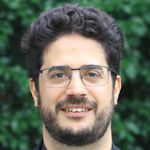 Nikolaos P. Daskalakis, MD, PhD, is the Director of the Neurogenomics and Translational Bioinformatics Laboratory at McLean Hospital and an assistant professor of psychiatry at Harvard Medical School. He is also an affiliate member of the Broad Institute, MIT Computer Science and Artificial Intelligence Laboratory and National Center for PTSD. Dr. Daskalakis received his MD from University of Athens, his PhD in neuropsychopharmacology from Leiden University, and completed postdoctoral research fellowships in clinical neuroendocrinology at Leiden University and in systems biology at Icahn School of Medicine.
Dr. Daskalakis focuses on the interaction between stress and the brain, conducting translational studies and following an integrative systems biology approach. His lab uses transcriptomic and epigenomic profiling of brain and blood samples to identify gene networks associated with vulnerability and resilience to PTSD. Dr. Daskalakis leads the Systems Biology working group of Psychiatric Genomics Consortium for PTSD. He is an editor for Brain Sciences and Frontiers (in Behavioral Neuroscience, Endocrinology, Neuroscience and Psychiatry).
Nikolaos P. Daskalakis, MD, PhD, is the Director of the Neurogenomics and Translational Bioinformatics Laboratory at McLean Hospital and an assistant professor of psychiatry at Harvard Medical School. He is also an affiliate member of the Broad Institute, MIT Computer Science and Artificial Intelligence Laboratory and National Center for PTSD. Dr. Daskalakis received his MD from University of Athens, his PhD in neuropsychopharmacology from Leiden University, and completed postdoctoral research fellowships in clinical neuroendocrinology at Leiden University and in systems biology at Icahn School of Medicine.
Dr. Daskalakis focuses on the interaction between stress and the brain, conducting translational studies and following an integrative systems biology approach. His lab uses transcriptomic and epigenomic profiling of brain and blood samples to identify gene networks associated with vulnerability and resilience to PTSD. Dr. Daskalakis leads the Systems Biology working group of Psychiatric Genomics Consortium for PTSD. He is an editor for Brain Sciences and Frontiers (in Behavioral Neuroscience, Endocrinology, Neuroscience and Psychiatry).
 Sabrina Diano is The Richard Sackler Family Professor of Ob/Gyn and Reproductive Sciences at Yale University School of Medicine. She is also Professor of Neuroscience and Comparative Medicine and founding member of the Yale Program in Integrative Cell Signaling and Neurobiology of Metabolism. She earned Doctor of Biology and PhD at University of Naples “Federico II” in Naples, Italy. Dr. Diano moved to Yale, USA, in 1994 to pursue her interest in metabolism regulation. She allied her expertise in neuroendocrinology and mitochondria biology to study brain regulation of energy and glucose metabolism.
Her studies have been published in high impact journals, including Nature, Science, Cell, Nature Medicine, Nature Neuroscience, Cell Metabolism, Diabetes, JCI and PNAS.
Sabrina Diano is The Richard Sackler Family Professor of Ob/Gyn and Reproductive Sciences at Yale University School of Medicine. She is also Professor of Neuroscience and Comparative Medicine and founding member of the Yale Program in Integrative Cell Signaling and Neurobiology of Metabolism. She earned Doctor of Biology and PhD at University of Naples “Federico II” in Naples, Italy. Dr. Diano moved to Yale, USA, in 1994 to pursue her interest in metabolism regulation. She allied her expertise in neuroendocrinology and mitochondria biology to study brain regulation of energy and glucose metabolism.
Her studies have been published in high impact journals, including Nature, Science, Cell, Nature Medicine, Nature Neuroscience, Cell Metabolism, Diabetes, JCI and PNAS.
She is a scientific reviewer of several centers including the MRC at Cambridge University, JDRF, NIH, The Klarman Family Foundation, the ADA, The German Research Foundation, The Helmholtz Institute in Leipzig and the Max Planck Institute in Cologne, Germany.
She has been featured in the “Women in Metabolism 2015 series: The “Rosies” of Cell Metabolism, the 10th year anniversary celebrations of Cell Metabolism. For her studies on central control of glucose and energy metabolism she was the recipient of the Helmholtz Diabetes Award 2018, from the Helmholtz Society (Germany), the Novo Nordisk Foundation Laurate Award (that she declined), the JCI Lectureship Award at the Deuel Conference.
 Michael Ewers is Professor of Neuroimaging at the Institute for Stroke and Dementia Research, University Hospital LMU. He has more than 20 years of experience in Neuroimaging and Biomarker Research for clinical applications in Alzheimer’s disease. His major research interest focusses on the neuroimaging-based identification of multivariate predictors of disease progression and the examination of functional brain mechanisms that underlie reserve in AD. His h-index is 45 and he has published more than 120 articles. He serves as senior editor at the journal Alzheimer’s & Dementia.
Michael Ewers is Professor of Neuroimaging at the Institute for Stroke and Dementia Research, University Hospital LMU. He has more than 20 years of experience in Neuroimaging and Biomarker Research for clinical applications in Alzheimer’s disease. His major research interest focusses on the neuroimaging-based identification of multivariate predictors of disease progression and the examination of functional brain mechanisms that underlie reserve in AD. His h-index is 45 and he has published more than 120 articles. He serves as senior editor at the journal Alzheimer’s & Dementia.
 Afsaneh Gaillard is professor in Neuroscience and the head of INSERM team “Cell therapy for brain disorders”, located in Poitiers, France. Afsaneh Gaillard received a European PhD in Neuroscience between the university of Poitiers and Würzburg. After a post-doctoral position at the department of anatomy and cytology of the faculty of medicine at Odense University in Denmark, she obtained a permanent position at the University of Poitiers. Gaillard has established her team as a pioneer in brain reconstruction following cortical trauma and Parkinson’s disease, moving the grafting procedures a step forward. She published more than 70 scientific papers in international journals such as Nature, Nature Neuroscience, Neuron, TINS, ... Her research and team has been ranked outstanding in two consecutive HCERES evaluation campaign. She has coordinated several grants and received numerous awards notably a “Chaire d’Excellence”.
Afsaneh Gaillard is professor in Neuroscience and the head of INSERM team “Cell therapy for brain disorders”, located in Poitiers, France. Afsaneh Gaillard received a European PhD in Neuroscience between the university of Poitiers and Würzburg. After a post-doctoral position at the department of anatomy and cytology of the faculty of medicine at Odense University in Denmark, she obtained a permanent position at the University of Poitiers. Gaillard has established her team as a pioneer in brain reconstruction following cortical trauma and Parkinson’s disease, moving the grafting procedures a step forward. She published more than 70 scientific papers in international journals such as Nature, Nature Neuroscience, Neuron, TINS, ... Her research and team has been ranked outstanding in two consecutive HCERES evaluation campaign. She has coordinated several grants and received numerous awards notably a “Chaire d’Excellence”.
 Dr. Laurent Groc is Research Director for the CNRS in the Interdisciplinary Institute for Neurosciences (Bordeaux, France). After receiving his B.S. degree from the University of Toulouse (France), he earned his PhD degree in neurobiology at Wayne State University (MI, USA) and University of Lyon (France), working in the Gossett laboratory of Robert Levine. He took a postdoctoral training from Bengt Gustafsson and Eric Hanse at the Department of Physiology in the University of Goteborg (Sweden). During this stay, he studied the maturation of glutamatergic synapses, unveiling its high lability. In 2004, he was recruited by the CNRS in the laboratory of Daniel Choquet, to pursue his research by combining electrophysiological and single molecule imaging approaches. In 2009, he was nominated Research Director. His laboratory is interested in how developing synapses are formed in health and psychotic diseases. He uses a variety of methods (classical and single molecule imaging, electrophysiological, biochemical, molecular, and behavioral) to investigate the molecular pathways regulating the dynamic organization of synaptic proteins in physiopathological conditions. He was president of the French Ion Channel Society in 2011-2012, and associated editor for several journals. In light of his research achievement, he received several awards, including 2016 Human Frontier Science Program Award, 2015 Dassault Prize, and 2015 Foulon Prize (French Academy of Sciences).
Dr. Laurent Groc is Research Director for the CNRS in the Interdisciplinary Institute for Neurosciences (Bordeaux, France). After receiving his B.S. degree from the University of Toulouse (France), he earned his PhD degree in neurobiology at Wayne State University (MI, USA) and University of Lyon (France), working in the Gossett laboratory of Robert Levine. He took a postdoctoral training from Bengt Gustafsson and Eric Hanse at the Department of Physiology in the University of Goteborg (Sweden). During this stay, he studied the maturation of glutamatergic synapses, unveiling its high lability. In 2004, he was recruited by the CNRS in the laboratory of Daniel Choquet, to pursue his research by combining electrophysiological and single molecule imaging approaches. In 2009, he was nominated Research Director. His laboratory is interested in how developing synapses are formed in health and psychotic diseases. He uses a variety of methods (classical and single molecule imaging, electrophysiological, biochemical, molecular, and behavioral) to investigate the molecular pathways regulating the dynamic organization of synaptic proteins in physiopathological conditions. He was president of the French Ion Channel Society in 2011-2012, and associated editor for several journals. In light of his research achievement, he received several awards, including 2016 Human Frontier Science Program Award, 2015 Dassault Prize, and 2015 Foulon Prize (French Academy of Sciences).
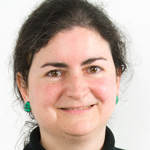 Sonia Guil did her Ph.D. on alternative splicing before moving to Dr. Cáceres lab at the HGU-MRC in Edinburgh to investigate RNA binding proteins and the biogenesis of microRNAs. She is currently leading the “Regulatory RNA and chromatin” research team in the Cancer Epigenetics and Biology Program at IDIBELL (L’Hospitalet de Llobregat, Barcelona).
Sonia Guil did her Ph.D. on alternative splicing before moving to Dr. Cáceres lab at the HGU-MRC in Edinburgh to investigate RNA binding proteins and the biogenesis of microRNAs. She is currently leading the “Regulatory RNA and chromatin” research team in the Cancer Epigenetics and Biology Program at IDIBELL (L’Hospitalet de Llobregat, Barcelona).
The main aim of the lab is the study of RNA regulation and specifically noncoding RNAs (ncRNAs) in human disease, with a specific interest in the ncRNA-mediated regulation of transcriptional and post-transcriptional control in both physiological and disease conditions. We combine a battery of biochemical, cellular and global transcriptomic approaches to dissect mechanisms of gene expression regulation with the participation of ncRNAs. We have described the role of intronic RNAs directly interacting with Polycomb family members (Guil et al, NSMB 2012), the existence of new RNA–RNA regulatory networks of relevance in cancer (Liz et al, Mol Cell 2014), the identification of new mechanisms of gene expression regulation through the formation of R loops (Boque-Sastre et al, PNAS 2015) or the pathological silencing of particular lncRNAs in the p53 pathway (Diaz-Lagares et al, PNAS 2016). One particular angle of interest is the understanding of the poorly characterised role of the lncRNAs in the onset and/or development of neurological disorders, since the brain is the organ with the richest display of RNA-mediated regulatory mechanisms.
 Tanja Jovanovic, Ph.D., is a Professor in the Department of Psychiatry and Behavioral Neurosciences and the David and Patricia Barron Chair for PTSD Neurobiology at Wayne State University. Dr. Jovanovic received her Bachelor of Science in Biology at Oklahoma Christian University in 1994, and her Ph.D. in Neuroscience and Animal Behavior at Emory University in 2002. From 2015 to 2018, Dr. Jovanovic was the Director of the Grady Trauma Project in Atlanta, Georgia. Dr. Jovanovic’s research program focuses on the interaction of traumatic experiences, neurophysiology, neuroendocrinology, and genetics in stress-related disorders in adults and children in high-risk populations. Her research employs psychophysiological (e.g. fear-potentiated startle, skin conductance response, heart-rate variability) and brain imaging methods to investigate biomarkers of risk for trauma-related psychopathology, such as post-traumatic stress disorder (PTSD). Her laboratory developed novel human fear conditioning, fear inhibition, and extinction paradigms for PTSD patients. Dr. Jovanovic is the lead investigator on several federally funded grants from the National Institutes of Health and has an Independent Investigator Award from the Brain and Behaviour Research Foundation. She has published over 100 peer-reviewed papers and served on national and international grant review panels.
Tanja Jovanovic, Ph.D., is a Professor in the Department of Psychiatry and Behavioral Neurosciences and the David and Patricia Barron Chair for PTSD Neurobiology at Wayne State University. Dr. Jovanovic received her Bachelor of Science in Biology at Oklahoma Christian University in 1994, and her Ph.D. in Neuroscience and Animal Behavior at Emory University in 2002. From 2015 to 2018, Dr. Jovanovic was the Director of the Grady Trauma Project in Atlanta, Georgia. Dr. Jovanovic’s research program focuses on the interaction of traumatic experiences, neurophysiology, neuroendocrinology, and genetics in stress-related disorders in adults and children in high-risk populations. Her research employs psychophysiological (e.g. fear-potentiated startle, skin conductance response, heart-rate variability) and brain imaging methods to investigate biomarkers of risk for trauma-related psychopathology, such as post-traumatic stress disorder (PTSD). Her laboratory developed novel human fear conditioning, fear inhibition, and extinction paradigms for PTSD patients. Dr. Jovanovic is the lead investigator on several federally funded grants from the National Institutes of Health and has an Independent Investigator Award from the Brain and Behaviour Research Foundation. She has published over 100 peer-reviewed papers and served on national and international grant review panels.
 In 2016 Aletta Kraneveld (MSc Pharmacy & pharmacologist) was appointed as full professor Interdisciplinary Translational Pharmacology at the Faculty of Science and the faculty of Veterinary Medicine of the Utrecht University. She has published >115 papers (H-index: 39). Besides science leading the neuroimmunopharmacology group, she is an active member of several boards of (inter)national scientific and societal organizations (Dutch Society of Pharmacology, EPHAR, IUPHAR, Netherlands Federation of Innovative Drug research; Diversity committee UU; Food Lives-NL).
In 2016 Aletta Kraneveld (MSc Pharmacy & pharmacologist) was appointed as full professor Interdisciplinary Translational Pharmacology at the Faculty of Science and the faculty of Veterinary Medicine of the Utrecht University. She has published >115 papers (H-index: 39). Besides science leading the neuroimmunopharmacology group, she is an active member of several boards of (inter)national scientific and societal organizations (Dutch Society of Pharmacology, EPHAR, IUPHAR, Netherlands Federation of Innovative Drug research; Diversity committee UU; Food Lives-NL).
Kraneveld’s current research interests involve targeting the interaction between innate and adaptive immunity as well as host-microbiome interactions in chronic (inflammatory) diseases with pharmaceutical as well as nutritional interventions. The Kraneveld group is focusing research to in depth study the role of the gut-immune-brain-axis in neurodevelopmental and neurodegenerative disorders. Results will further enhance the knowledge of the interaction of microbiome with the immune and nervous systems in chronic conditions in the gut and CNS. Aletta Kraneveld has set up a program that is a (inter)national neuro-immune platform where academia, patient organisations and industry meet for research on the gut-immune-brain axis as target for medicine and medical food concepts.
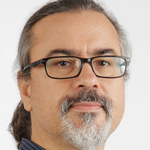 Dr. Lefkimmiatis graduated in 2006 from the University of Bari, Italy and pursued his postdoctoral studies at Harvard Medical School where he became interested in cellular signalling. In 2013 he moved to the Department of Physiology Anatomy and Genetics at the university of Oxford, where he established his independent research group. In 2016 Dr. Lefkimmiatis obtained a tenured position at the Institute of Neuroscience of the Italian National Research Council and he is also a principal investigator at the Veneto Institute of Molecular Medicine (VIMM) in Padova, Italy. His group uses a combination of biochemistry, molecular biology and live cell imaging to investigate the molecular mechanisms that allow the generation of distinct cAMP/PKA events in subcellular compartments. Dr. Lefkimmiatis reviews for several international journals including eLife; Nature Cell Biology, Cell Reports, Circulation and Scientific Reports, and for several grant agencies including Medical Research Council (MRC-UK), British Heart Foundation (BHF-UK), Biotechnology and Biological Sciences Research Council (BBSRC-UK), Alzheimer’s Association (USA) and Danish Council for Independent Research (DFF-YDUN).
Dr. Lefkimmiatis graduated in 2006 from the University of Bari, Italy and pursued his postdoctoral studies at Harvard Medical School where he became interested in cellular signalling. In 2013 he moved to the Department of Physiology Anatomy and Genetics at the university of Oxford, where he established his independent research group. In 2016 Dr. Lefkimmiatis obtained a tenured position at the Institute of Neuroscience of the Italian National Research Council and he is also a principal investigator at the Veneto Institute of Molecular Medicine (VIMM) in Padova, Italy. His group uses a combination of biochemistry, molecular biology and live cell imaging to investigate the molecular mechanisms that allow the generation of distinct cAMP/PKA events in subcellular compartments. Dr. Lefkimmiatis reviews for several international journals including eLife; Nature Cell Biology, Cell Reports, Circulation and Scientific Reports, and for several grant agencies including Medical Research Council (MRC-UK), British Heart Foundation (BHF-UK), Biotechnology and Biological Sciences Research Council (BBSRC-UK), Alzheimer’s Association (USA) and Danish Council for Independent Research (DFF-YDUN).
 Nuo Li is a faculty member in the Department of Neuroscience at Baylor College of Medicine. His research is focused on understanding how neural circuit dynamics in the brain give rise to behavior. His lab uses genetic tools, 2-photon microscopy and multi-electrode recordings to study the organization and function of neural circuits in the mouse during motor behaviors. Prior to joining Baylor, he received his bachelor’s degree in engineering from Washington University in St. Louis, where he worked with Dr. Dora Angelaki on neural mechanisms of spatial perception. He received his Ph.D. in neuroscience from MIT, where he worked with Dr. James DiCarlo on neural mechanisms of visual object recognition. He then joined Dr. Karel Svoboda’s lab at Janelia Research Campus, HHMI, as a Helen Hay Whitney postdoctoral fellow, where he developed tools and methods to study the circuit mechanisms of decision-making in mice. He is a 2017 Alfred P. Sloan Research Fellow, a 2017 Searle Scholar, an investigator of the Simons Collaboration on the Global Brain, and a 2018 Pew Scholar.
Nuo Li is a faculty member in the Department of Neuroscience at Baylor College of Medicine. His research is focused on understanding how neural circuit dynamics in the brain give rise to behavior. His lab uses genetic tools, 2-photon microscopy and multi-electrode recordings to study the organization and function of neural circuits in the mouse during motor behaviors. Prior to joining Baylor, he received his bachelor’s degree in engineering from Washington University in St. Louis, where he worked with Dr. Dora Angelaki on neural mechanisms of spatial perception. He received his Ph.D. in neuroscience from MIT, where he worked with Dr. James DiCarlo on neural mechanisms of visual object recognition. He then joined Dr. Karel Svoboda’s lab at Janelia Research Campus, HHMI, as a Helen Hay Whitney postdoctoral fellow, where he developed tools and methods to study the circuit mechanisms of decision-making in mice. He is a 2017 Alfred P. Sloan Research Fellow, a 2017 Searle Scholar, an investigator of the Simons Collaboration on the Global Brain, and a 2018 Pew Scholar.
 David Linden obtained a DPhil from the University of Oxford for his work on medical ethics in antiquity in 2000 and a Dr. med. in neuroscience at the Max Planck Institute for Brain Research in 1999. He trained in psychiatry at Frankfurt University and has a special interest in clinical neuropsychiatry and neurodevelopmental genetic syndromes. Since 2017 he has been the scientific director of the School for Mental Health and Neuroscience at the Faculty of Health, Medicine and Life Sciences, Maastricht University. In his research he applies structural and functional magnetic resonance imaging (MRI), neurophysiological techniques and genetics in order to understand the function of the brain in health and disease. David is the author of “The Biology of Psychological Disorders” (2nd edition, 2018), “Brain Control” (2014) and “Neuroimaging and Neurophysiology in Psychiatry” (2016) and over 200 scientific papers in the fields of biological psychiatry, functional brain imaging, visual and social cognitive neuroscience, and neurofeedback. He has coordinated trials of functional MRI-based neurofeedback in depression and Parkinson’s disease. He is also the coordinator of the European Consortium “BRAINTRAIN” (www.braintrainproject.eu), funded by the European Commission under the 7th Framework Programme, which develops and evaluates imaging-based neurofeedback methods for a range of mental disorders.
David Linden obtained a DPhil from the University of Oxford for his work on medical ethics in antiquity in 2000 and a Dr. med. in neuroscience at the Max Planck Institute for Brain Research in 1999. He trained in psychiatry at Frankfurt University and has a special interest in clinical neuropsychiatry and neurodevelopmental genetic syndromes. Since 2017 he has been the scientific director of the School for Mental Health and Neuroscience at the Faculty of Health, Medicine and Life Sciences, Maastricht University. In his research he applies structural and functional magnetic resonance imaging (MRI), neurophysiological techniques and genetics in order to understand the function of the brain in health and disease. David is the author of “The Biology of Psychological Disorders” (2nd edition, 2018), “Brain Control” (2014) and “Neuroimaging and Neurophysiology in Psychiatry” (2016) and over 200 scientific papers in the fields of biological psychiatry, functional brain imaging, visual and social cognitive neuroscience, and neurofeedback. He has coordinated trials of functional MRI-based neurofeedback in depression and Parkinson’s disease. He is also the coordinator of the European Consortium “BRAINTRAIN” (www.braintrainproject.eu), funded by the European Commission under the 7th Framework Programme, which develops and evaluates imaging-based neurofeedback methods for a range of mental disorders.
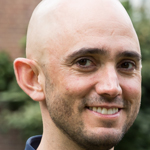 Andre Marquand is a principal investigator and assistant professor at the Donders Institute for Brain, Cognition and Behaviour and Radboud University Medical Centre Nijmegen, where he leads the Predictive Clinical Neuroscience research group. In his research, he combines advanced machine learning methods with big data neuroscience to change the way people think about psychiatric disorders. He develops novel data analytical methods based on classical, Bayesian, and deep learning technology which he applies to neuroimaging and clinical data from large population-based cohorts. The techniques he develops shift the focus from the population to the individual patient, thereby advancing beyond the simple case-control comparisons that have dominated biomedical science for decades. Ultimately this research line paves the way to a better understanding of the heterogeneous biology of psychiatric disorders at the level of the individual patient and will help us to more accurately predict disease course and outcome in many disorders.
Andre Marquand is a principal investigator and assistant professor at the Donders Institute for Brain, Cognition and Behaviour and Radboud University Medical Centre Nijmegen, where he leads the Predictive Clinical Neuroscience research group. In his research, he combines advanced machine learning methods with big data neuroscience to change the way people think about psychiatric disorders. He develops novel data analytical methods based on classical, Bayesian, and deep learning technology which he applies to neuroimaging and clinical data from large population-based cohorts. The techniques he develops shift the focus from the population to the individual patient, thereby advancing beyond the simple case-control comparisons that have dominated biomedical science for decades. Ultimately this research line paves the way to a better understanding of the heterogeneous biology of psychiatric disorders at the level of the individual patient and will help us to more accurately predict disease course and outcome in many disorders.
 Prof Morris leads the Environmental determinants of obesity research group within the School of Medical Sciences, UNSW. Her research addresses critical questions concerning the impact of adverse early life events and lifestyle factors on chronic disease risk. She has worked extensively on the impact of maternal obesity on health of the offspring, and explored both pharmacological and lifestyle (e.g. exercise) options for intervention. Recent work investigating the role of paternal obesity on the health of offspring demonstrated that when rat fathers were fed a high fat diet to induce obesity and glucose intolerance, the resulting female offspring exhibited impaired glucose tolerance and insulin secretion (Nature 2010).
Prof Morris leads the Environmental determinants of obesity research group within the School of Medical Sciences, UNSW. Her research addresses critical questions concerning the impact of adverse early life events and lifestyle factors on chronic disease risk. She has worked extensively on the impact of maternal obesity on health of the offspring, and explored both pharmacological and lifestyle (e.g. exercise) options for intervention. Recent work investigating the role of paternal obesity on the health of offspring demonstrated that when rat fathers were fed a high fat diet to induce obesity and glucose intolerance, the resulting female offspring exhibited impaired glucose tolerance and insulin secretion (Nature 2010).
Prof Morris began her scientific career at Monash University, Melbourne completing a BSc then PhD in Medicine, before embarking on postdoctoral work in Adelaide and France (INSERM). Six years later she joined Deakin University, then the Department of Pharmacology at University of Melbourne in 1995. Morris was appointed as inaugural Professor and Head of Pharmacology, UNSW, in 2005, where she leads a 70 person research/academic hub. Over her academic career Morris has published >240 peer reviewed articles and supervised 24 PhD students to completion [H index 53]. A full-time Teaching/Research academic with experience in 5 Australian Universities, in 2014 UNSW named Morris as 1 of ‘15 women changing the world’.
 Prof. dr. Danielle Posthuma (1972) is a statistical geneticist and head of the Department Complex Trait Genetics at the Vrije Universiteit (VU) Amsterdam and VU University Medical Center Amsterdam, The Netherlands. She holds three masters’ degrees and received her PhD cum laude in 2002 at the VU. She is an elected member of the Academy of the Royal Dutch Academy of Sciences, holds an ERC Advanced Grant, and is recipient of several national and international awards. In 2008, 2009 and 2010 she was elected as one of the 400 most successful women under the age of 38 in the Netherlands.
Her current research focusses on understanding mechanisms underlying neuropsychiatric and cognitive traits and bridging genetics and neuroscience. She co-founded the Dutch iPScenter, which aims to detect biological mechanisms of brain-related traits using human induced pluripotent cells. She is involved in many national and international collaborations, has co-authored > 150 papers and was the lead author on several articles that appeared in Nature Genetics, Nature Neuroscience, and Nature Reviews Genetics. Her recent publications as lead author include (i) the largest meta-analysis in the history of science, which included results from nearly 3,000 published studies and presented a comprehensive resource on the heritability of every trait ever studied in a twin population (Nature Genetics, 2015; http://match.ctglab.nl), (ii) a major breakthrough in the discovery of genes for intelligence (Nature Genetics, 2017 & 2018), Alzheimer’s disease (Nature Genetics 2019), Neuroticism Nature Genetics, 2018) and Insomnia (Nature Genetics, 2017 & 2019), and (iii) novel tools for genes-set analysis (MAGMA, Nature Rev Genetics, 2016) and for functional interpretation of GWAS findings (FUMA: http://fuma.ctglab.nl, Nat Comm, 2017). She currently works on the genetics of psychiatric and neurodegenerative disorders, and co-leads the Alzheimer workgroup of the Psychiatric Genomics Consortium.
Prof. dr. Danielle Posthuma (1972) is a statistical geneticist and head of the Department Complex Trait Genetics at the Vrije Universiteit (VU) Amsterdam and VU University Medical Center Amsterdam, The Netherlands. She holds three masters’ degrees and received her PhD cum laude in 2002 at the VU. She is an elected member of the Academy of the Royal Dutch Academy of Sciences, holds an ERC Advanced Grant, and is recipient of several national and international awards. In 2008, 2009 and 2010 she was elected as one of the 400 most successful women under the age of 38 in the Netherlands.
Her current research focusses on understanding mechanisms underlying neuropsychiatric and cognitive traits and bridging genetics and neuroscience. She co-founded the Dutch iPScenter, which aims to detect biological mechanisms of brain-related traits using human induced pluripotent cells. She is involved in many national and international collaborations, has co-authored > 150 papers and was the lead author on several articles that appeared in Nature Genetics, Nature Neuroscience, and Nature Reviews Genetics. Her recent publications as lead author include (i) the largest meta-analysis in the history of science, which included results from nearly 3,000 published studies and presented a comprehensive resource on the heritability of every trait ever studied in a twin population (Nature Genetics, 2015; http://match.ctglab.nl), (ii) a major breakthrough in the discovery of genes for intelligence (Nature Genetics, 2017 & 2018), Alzheimer’s disease (Nature Genetics 2019), Neuroticism Nature Genetics, 2018) and Insomnia (Nature Genetics, 2017 & 2019), and (iii) novel tools for genes-set analysis (MAGMA, Nature Rev Genetics, 2016) and for functional interpretation of GWAS findings (FUMA: http://fuma.ctglab.nl, Nat Comm, 2017). She currently works on the genetics of psychiatric and neurodegenerative disorders, and co-leads the Alzheimer workgroup of the Psychiatric Genomics Consortium.
 Dr. Jordi Riba holds a Ph.D. in Pharmacology and is currently Guest Researcher at the Department of Neuropsychology and Psychopharmacology of Maastricht University. He has specialized in the assessment of drug effects on the Central Nervious System in humans, using using behavioral, cognitive, neurophysiological and neuroimaging techniques. In his two decades of active research he has published around eighty journal articles and book chapters on the acute and long-term effects of cannabinoids, psychedelics, psychostimulants, and opioids. He has also supervised a total of six doctorate theses. In 2015 he published an article in Molecular Psychiatry showing that even after a prolonged one-month abstinence period, long-term heavy cannabis users display more difficulties than controls when required to distinguish between novel and old stimuli in a semantic memory task involving items chosen to elicit a high degree of uncertainty. In his presentation he will discuss his initial findings and will provide new data obtained in subsequent studies assessing the relationship between cannabis and false memory effects.
Dr. Jordi Riba holds a Ph.D. in Pharmacology and is currently Guest Researcher at the Department of Neuropsychology and Psychopharmacology of Maastricht University. He has specialized in the assessment of drug effects on the Central Nervious System in humans, using using behavioral, cognitive, neurophysiological and neuroimaging techniques. In his two decades of active research he has published around eighty journal articles and book chapters on the acute and long-term effects of cannabinoids, psychedelics, psychostimulants, and opioids. He has also supervised a total of six doctorate theses. In 2015 he published an article in Molecular Psychiatry showing that even after a prolonged one-month abstinence period, long-term heavy cannabis users display more difficulties than controls when required to distinguish between novel and old stimuli in a semantic memory task involving items chosen to elicit a high degree of uncertainty. In his presentation he will discuss his initial findings and will provide new data obtained in subsequent studies assessing the relationship between cannabis and false memory effects.
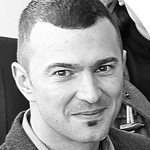 I am an Assistant Professor in the Department of Psychology and the Director of the Affective and Translational Neuroscience Laboratory at the University of Maryland. My work is supported by the National Institutes of Health and has led to more than 70 papers and chapters. I am Co-Editor of The Nature of Emotion, serve as an Associate Editor at several journals, and am an active member of the HiTOP research consortium. My work is focused on discovering the mechanisms that support the development and maintenance of internalizing disorders and substance abuse in the first three decades of life. These traits first emerge early in development and, when extreme, confer risk for a variety of adverse outcomes. To understand this liability, we use a broad spectrum of tools—multimodal neuroimaging, psychopharmacology, ecological momentary assessment, clinical and life-stress interviews, machine-learning and genetic analyses—in pediatric anxiety patients, adults, and monkeys. Clinically, our work promises to enhance our understanding of how emotions contribute to a range of psychiatric disorders, facilitate the discovery of novel biomarkers, and set the stage for developing more effective transdiagnostic interventions. From a basic science perspective, our work begins to address fundamental questions about the nature and the bases of temperament.
I am an Assistant Professor in the Department of Psychology and the Director of the Affective and Translational Neuroscience Laboratory at the University of Maryland. My work is supported by the National Institutes of Health and has led to more than 70 papers and chapters. I am Co-Editor of The Nature of Emotion, serve as an Associate Editor at several journals, and am an active member of the HiTOP research consortium. My work is focused on discovering the mechanisms that support the development and maintenance of internalizing disorders and substance abuse in the first three decades of life. These traits first emerge early in development and, when extreme, confer risk for a variety of adverse outcomes. To understand this liability, we use a broad spectrum of tools—multimodal neuroimaging, psychopharmacology, ecological momentary assessment, clinical and life-stress interviews, machine-learning and genetic analyses—in pediatric anxiety patients, adults, and monkeys. Clinically, our work promises to enhance our understanding of how emotions contribute to a range of psychiatric disorders, facilitate the discovery of novel biomarkers, and set the stage for developing more effective transdiagnostic interventions. From a basic science perspective, our work begins to address fundamental questions about the nature and the bases of temperament.
 Ron Stoop received his B.Sc. and M.Sc. in Biophysics from the Radboud University in Nijmegen. Part of his M.Sc. he conducted at the Institute of Biophysics at the Chinese Academy of Sciences in Beijing. After obtaining a degree in Chinese language at Beijing Foreign Language Institute, he started to study the neuromuscular junction in cell culture using the (then state-of-the art) whole-cell patch-clamp recording technique introduced in China by Profs. Zuoping Xie and TePei Feng at the Biophysics Department of Tsinghua University in Beijing. He continued this research line with a Ph.D. thesis under the guidance of Prof. Muming Poo at Columbia University in New York. After a postdoctoral fellowship at the Glaxo-Wellcome Biomedical Research Institute in Geneva with Prof. Alan North he started his own research group at the University of Lausanne in Switzerland. His research has shown how the neuropeptides oxytocin and vasopressin play an important role in fear behavior by oppositely modulating inhibitory circuitry in the amygdala and how their effects are endogenously mediated by an extensive network of neuropeptide projections from the hypothalamus to the amygdala. In recent work he has shown how fear regulation can be modified adaptively between passive versus active response modes by changes in threat imminence and by modulation of oxytocin on specific pathways between the basolateral and central amygdala, identified by chemogenetic downregulation in rodents and in humans suffering from bilateral damage in the basolateral amygdala. Since 2004, he has joined the Center for Psychiatric Neuroscience (CNP) in Prilly, consecutively as group leader, assistant-director and faculty professor and continues to work there to translationally study fear in rodents and humans.
Ron Stoop received his B.Sc. and M.Sc. in Biophysics from the Radboud University in Nijmegen. Part of his M.Sc. he conducted at the Institute of Biophysics at the Chinese Academy of Sciences in Beijing. After obtaining a degree in Chinese language at Beijing Foreign Language Institute, he started to study the neuromuscular junction in cell culture using the (then state-of-the art) whole-cell patch-clamp recording technique introduced in China by Profs. Zuoping Xie and TePei Feng at the Biophysics Department of Tsinghua University in Beijing. He continued this research line with a Ph.D. thesis under the guidance of Prof. Muming Poo at Columbia University in New York. After a postdoctoral fellowship at the Glaxo-Wellcome Biomedical Research Institute in Geneva with Prof. Alan North he started his own research group at the University of Lausanne in Switzerland. His research has shown how the neuropeptides oxytocin and vasopressin play an important role in fear behavior by oppositely modulating inhibitory circuitry in the amygdala and how their effects are endogenously mediated by an extensive network of neuropeptide projections from the hypothalamus to the amygdala. In recent work he has shown how fear regulation can be modified adaptively between passive versus active response modes by changes in threat imminence and by modulation of oxytocin on specific pathways between the basolateral and central amygdala, identified by chemogenetic downregulation in rodents and in humans suffering from bilateral damage in the basolateral amygdala. Since 2004, he has joined the Center for Psychiatric Neuroscience (CNP) in Prilly, consecutively as group leader, assistant-director and faculty professor and continues to work there to translationally study fear in rodents and humans.
 Lucia Talamini is the head of the UvA Sleep and Memory Lab. Her research on sleep and memory occurs at the interface of neuroscience, psychology and technology. She has authored over 70 scientific publications, holds two patents and has been awarded many grants including a VIDI innovation grant. Research in the lab regards higher-order information processing during sleep and other alternative states of consciousness. Several lines of research investigate how such off line processing contributes to cognitive function and emotional housekeeping. The lab has a strong emphasis on neurotech development, including advanced methods to read and influence brain activity. Such non-invasive brain manipulations have been used, for instance, to deepen sleep and to influence memories during sleep. Talamini collaborates with several partners in academia and industry to develop new clinical interventions as well as non-clinical applications based on the labs findings.
Lucia Talamini is the head of the UvA Sleep and Memory Lab. Her research on sleep and memory occurs at the interface of neuroscience, psychology and technology. She has authored over 70 scientific publications, holds two patents and has been awarded many grants including a VIDI innovation grant. Research in the lab regards higher-order information processing during sleep and other alternative states of consciousness. Several lines of research investigate how such off line processing contributes to cognitive function and emotional housekeeping. The lab has a strong emphasis on neurotech development, including advanced methods to read and influence brain activity. Such non-invasive brain manipulations have been used, for instance, to deepen sleep and to influence memories during sleep. Talamini collaborates with several partners in academia and industry to develop new clinical interventions as well as non-clinical applications based on the labs findings.
 Louk J.M.J. Vanderschuren is Professor of Behavioural Neuroscience at the Faculty of Veterinary Medicine at Utrecht University (the Netherlands). He obtained his PhD degree in 1994 at Utrecht University with research into the role of opioid neurotransmission in social play behaviour in rats. Subsequently, he studied the neurobiology of drug addiction at the VU University Amsterdam and the University of Cambridge. In 2004 he was appointed staff member at the Rudolf Magnus Institute of Neuroscience (University Medical Center Utrecht), and in 2010 he was appointed Professor at the Faculty of Veterinary Medicine. His research deals with the neurobiology of social play behaviour, impulsive behaviour and substance addiction. He is President-Elect of the European Behavioural Pharmacology Society and editor of Behavioural Pharmacology. He has published >140 articles in international peer-reviewed journals.
Louk J.M.J. Vanderschuren is Professor of Behavioural Neuroscience at the Faculty of Veterinary Medicine at Utrecht University (the Netherlands). He obtained his PhD degree in 1994 at Utrecht University with research into the role of opioid neurotransmission in social play behaviour in rats. Subsequently, he studied the neurobiology of drug addiction at the VU University Amsterdam and the University of Cambridge. In 2004 he was appointed staff member at the Rudolf Magnus Institute of Neuroscience (University Medical Center Utrecht), and in 2010 he was appointed Professor at the Faculty of Veterinary Medicine. His research deals with the neurobiology of social play behaviour, impulsive behaviour and substance addiction. He is President-Elect of the European Behavioural Pharmacology Society and editor of Behavioural Pharmacology. He has published >140 articles in international peer-reviewed journals.
 Alexander Walter is the head of the junior research group for Molecular & Theoretical Neuroscience (http://www.leibniz-fmp.de/walter) at the Leibniz Institute for Molecular Pharmacology. Alexander is interested in the molecular mechanisms of synaptic transmission. By combining Drosophila genetics, electrophysiology, live-imaging and super-resolution microscopy with mathematical modeling his research group recently identified the major component that generates release sites for synaptic vesicles, the regulation during presynaptic potentiation and the importance of their exact positioning for proper synaptic transmission. They found that release sites are generated by Unc13 proteins, which contain functional domains that operate in release site positioning via interactions with large active zone scaffolding proteins. Moreover, the group could show that signaling lipids of the plasma membrane interact with Unc13 proteins to regulate the vesicle fusion process.
Alexander Walter is the head of the junior research group for Molecular & Theoretical Neuroscience (http://www.leibniz-fmp.de/walter) at the Leibniz Institute for Molecular Pharmacology. Alexander is interested in the molecular mechanisms of synaptic transmission. By combining Drosophila genetics, electrophysiology, live-imaging and super-resolution microscopy with mathematical modeling his research group recently identified the major component that generates release sites for synaptic vesicles, the regulation during presynaptic potentiation and the importance of their exact positioning for proper synaptic transmission. They found that release sites are generated by Unc13 proteins, which contain functional domains that operate in release site positioning via interactions with large active zone scaffolding proteins. Moreover, the group could show that signaling lipids of the plasma membrane interact with Unc13 proteins to regulate the vesicle fusion process.
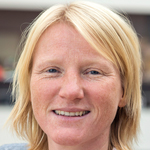 Corette Wierenga studied physics at the VU in Amsterdam and did her Ph.D. with Wytse Wadman at the UvA. She was a postdoctoral researcher with Gina Turrigiano (Brandeis University, Waltham MA, USA) and with Tobias Bonhoeffer (Max Planck Institute of Neurobiology, Martinsried, Germany). In 2012 she started her independent research group at the Utrecht University, supported by a VIDI grant. Since 2015 she is appointed as Associate Professor of Synaptic Physiology.
Corette Wierenga studied physics at the VU in Amsterdam and did her Ph.D. with Wytse Wadman at the UvA. She was a postdoctoral researcher with Gina Turrigiano (Brandeis University, Waltham MA, USA) and with Tobias Bonhoeffer (Max Planck Institute of Neurobiology, Martinsried, Germany). In 2012 she started her independent research group at the Utrecht University, supported by a VIDI grant. Since 2015 she is appointed as Associate Professor of Synaptic Physiology.
My research comprises different aspects of the dynamic coordination between excitatory and inhibitory synapses within dendrites during development, plasticity and in neurodevelopmental disease. My main expertise is in the formation and plasticity of inhibitory synapses in dendrites of principal neurons, with a special emphasis on the local interactions with excitatory synapses. In my lab, we use two-photon microscopy and electrophysiology in acute brain slices and organotypic cultures, in combination with virus infections, two-photon uncaging and immunohistochemistry to label and manipulate specific proteins or synapses.
 Cheng Zhan has a B.S. & M.S. in Optical Engineering and a Ph.D. in Neuroscience from Hua Zhong University of Science and Technology in China. During his Master period, he studied novel optical imaging techniques for neuroscience. After that, he received his Ph.D. training in a neuroscience lab at National Institute of Biological Sciences (NIBS), Beijing. After completing his Ph.D. training, he was appointed as the director of the Imaging Facility at NIBS. Meanwhile, he set up a group and began to carry out an independent research.
Cheng Zhan has a B.S. & M.S. in Optical Engineering and a Ph.D. in Neuroscience from Hua Zhong University of Science and Technology in China. During his Master period, he studied novel optical imaging techniques for neuroscience. After that, he received his Ph.D. training in a neuroscience lab at National Institute of Biological Sciences (NIBS), Beijing. After completing his Ph.D. training, he was appointed as the director of the Imaging Facility at NIBS. Meanwhile, he set up a group and began to carry out an independent research.
Dr. Cheng’ research interests focus on how the brain, in particular the hypothalamus and the brainstem, controls energy metabolism. By using chemogenetics, optogenetics, circuit mapping, electrophysiological recordings, fiber photometry and optical imaging tools, his group studies the circuitry mechanisms underlying feeding behavior, body temperature regulation, and glucose metabolism. In 2017, his group demonstrated that a population of catecholaminergic neurons in the ventrolateral medulla is both necessary and sufficient for mobilizing the body’s glucose stores in response to threats (Z. Zhao et al., Neuron, 2017).